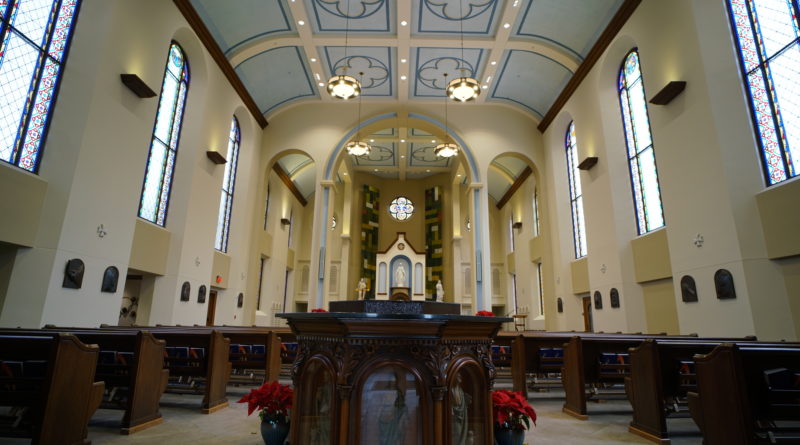UD’s disinvitation of Dr. Tlaleng Mofokeng prompts local and national responses
On Jan. 24, Flyer News was the first to report the disinvitation of Dr. Tlaleng Mofokeng from the Social Practices of Human Rights conference that took place Dec. 2-4, 2021. The story has since prompted responses from students, faculty and national organizations.
Lauren Durham | Outgoing Print Editor-in-Chief
After hearing the university’s decision to disinvite UN Special Rapporteur Dr. Tlaleng Mofokeng, numerous groups have publicly voiced concerns and have begun working toward solutions to ensure that this situation does not occur again.
Dr. Tlaleng Mofokeng, commonly known as Dr. T, was disinvited from the conference on the grounds that her “background and work related to reproduction is inconsistent with the University’s Catholic, Marianist mission and identity,” according to the formal university statement.
Caroline Waldron, associate professor of history at the University of Dayton, described the story in two phases – the first being the initial disinvitation in December and the second being prompted by the story in January and shared through social media.
“The way that that first phase of information sharing circulated was primarily through social media, including the posting that Dr. Mofokeng herself posted,” Waldron said. “The next phase came through campus as the community conversations continued. In this phase of conversations, which were part of the Flyer News story as well as through dialogues across campus, there was great concern about the climate of academic freedom, and the ways that issues get discussed openly in an academic community whose central mission is about higher learning and educating the whole person.”
Bridget Graham, senior human rights and political science major, retweeted the story and received a comment from Mofokeng on Jan. 27.
Graham wrote, “@univofdayton admin claims to value open dialogue, yet disinvited @drtlaleng from speaking at SPHR this year due to a fear of backlash about her work in reproductive rights. I’m disappointed we were denied the opportunity to learn from this leader in human rights at #SPHR21.”
Mofokeng commented, saying, “I’m sorry this happened but it does affirm why it is so important to keep doing this work. I’m sure we’ll get another opportunity in the future.”
Also on Jan. 27, Mofokeng herself retweeted the Flyer News story on Twitter.
“The irony is that I’m also Catholic but I don’t allow my personal religious freedom to impede other people’s human rights,” Mofokeng wrote in the tweet. “As a @UN_SPExperts I remain committed to advancing the mandate given to me by @UN_HRC and will never bow to pressure to water down on human rights.”
Conversations on Twitter in response to the story among UD students, alumni, faculty and staff prompted more to take place in the coming months.
Campus reactions
Students, specifically women of color involved in the Multi-Ethnic Education and Engagement Center (MEC), Black Action Through Unity (BATU) and Women in Power on campus, felt the harmful effects of the administration’s decision, according to senior Jada Brown.
“Obviously, at this point the human rights event is over, so it’s not like something we can take back. But, I do think we can prevent it from happening again,” Brown said.
With the help of Brown and her peers, a petition was created by students and was circulated on social media in February. The Google form title “Petition to Support Dr. T” has 78 student responses and one faculty response. Although optional, a total of 18 comments were recorded.
Given Brown’s involvement and her position as SGA representative on the Executive Committee of the Academic Senate, she and other women of color on campus discussed their concerns and a need for action with the group.
“I think part of preventing it from happening again is actually including students within the conversation of who we invite to speak at big events like that,” Brown said.
On Feb. 6, SGA received a letter from university administration further explaining the disinvitation.
According to the statement, “Dr. Mofokeng’s expertise and international reputation related to the conference theme were not in question. However, as an abortion provider herself, Dr. Mofokeng’s conference keynote would have stood in sharp conflict with UD’s Catholic, Marianist mission and a core tenet of Catholic social teaching.”
UD administration “expect[s] advance consultation and thoughtful consideration related to high-visibility speaker engagements, which did not occur in this case,” also according to the statement.
One week later, Provost Paul Benson attended an SGA meeting on Feb. 13 to elaborate on the decision and answer questions. He shared that he specifically spoke with students who felt the decision on a personal level due to their race and/or gender identity.
“I would emphasize that we have regularly had people who identify as women of color – Black women in particular – speak to our campus in a variety of capacities,” Benson said months later, noting that the Women’s Center hosted Dayton-area obstetrician-gynecologist Rosalind Jackson, MD, for women’s history month.
Benson said, “I regret if individual students felt this was a situation that reflected negatively on them. We tried to be very clear and I will say it again – this was not an easy decision.”
In response to discussion among SGA members, a formal resolution was passed on Feb. 20.
The resolution states that SGA commits to: 1) recognizing that regardless of where we stand with the disinvitation of Dr.Tlaleng Mofokeng, we want to avoid this situation from happening again; 2) we are open to having discussions with administrators for why this disinvitation
is problematic for the vision of the University’s Anti-Racism Plan; 3) Hope to find ways for students (especially those in marginalized backgrounds) to have a say in what speakers are authorized to speak on campus; and 4) hope to find ways for more diverse speakers with diverse perspectives to be welcomed to these discussions to encourage educational learning outside of the classroom.
“In terms of the disinvitation itself, the administration has been very collaborative on it,” Andrew Moyer, outgoing president of SGA said. “I do know I’ve been in at least four different conversations at different times regarding the disinvitation as well as in those meetings where students shared their experiences and how that impacted them, especially the disproportionate impact that it’s had on our marginalized communities and specifically Black women on campus.”
As for faculty members, the Flyer News story of the disinvitation was widely circulated and discussed at a number of department meetings.
“I can tell you it was forwarded among probably hundreds of faculty. I sent it to our department, which is around 34,” said Samuel Miner, lecturer in the department of history at UD. “I know that the same was true for colleagues in philosophy [and] political science.”
National reactions
Meanwhile, freedom of speech advocates were also voicing their concerns with the UD administration following the release of the story.
Foundation for Individual Rights in Education (FIRE)
On Feb. 9, the Foundation for Individual Rights in Education (FIRE) published a blog post and sent a letter to the UD administration, formally stating their concern with the canceling of Dr. Mofokeng as a keynote speaker at SPHR. The letter specifically states that “UD restricted its faculty members’ rights to contribute to free and open dialogue on campus.”
FIRE called upon “UD to publicly reaffirm its commitments to free expression and make clear that it will not disinvite speakers based on their viewpoints,” and the organization requested a response to the letter no later than Feb. 23.
On Feb. 10, UD had a response for FIRE. In the letter signed by Cilla Shindell, UD’s executive director of news and communications, FIRE was asked to include a statement from UD officials in their original story.
“The University strongly supports and protects faculty academic freedom, and we are concerned that the article contained inaccuracies and omitted important information. We ask that you incorporate the facts in the statement below into your article as soon as possible to accurately reflect the University’s position,” the letter states.
The statement provided is the following:
“Out of respect for our Catholic mission and identity, and for the University’s sponsorship by the Society of Mary, the University expects advance consultation and thoughtful consideration about high-profile external speakers before they are invited, which did not occur in this case. As an abortion provider, Dr. Mofokeng’s presence would have stood in sharp conflict with the University’s Catholic, Marianist mission and the right to life, a core tenet of Catholic social teaching. The invitation was withdrawn because of her work as an abortion provider.
“Our expected practice – where consultation occurs prior to a speaker being invited for large- scale, highly visible, widely promoted public events – allows concerns bearing on Catholic mission and identity to be addressed collaboratively within the University.”
UD’s letter argued that it canceled its faculty members’ invitation of Dr. Mofokeng because of her work as an abortion provider, not because of her viewpoints, and wanted to have that correction made. To the administration, there was a clear difference between Dr. Mofokeng’s “background and work” and her “views,” which then impacted the overall decision.
FIRE did update the blog story and replied to Shindell’s letter on Feb.15, but they felt that the administration was missing the point.
The letter from FIRE states, “Your response quibbles with our characterization of reasons why UD disinvited Dr. Mofokeng while missing the larger academic freedom issues we identified, and in doing so deepens rather than alleviates FIRE’s concerns about free expression at UD.”
FIRE insisted that their initial wording of why UD disinvited Dr. Mofokeng was not inaccurate, and the organization once again asked the university to “reaffirm and recommit its promises of free expression and academic freedom.”
According to Benson, UD did not respond to the most recent letter from FIRE.
“We felt we had said everything we needed to say in response to their position, so we didn’t say more,” Benson said. “FIRE is not an organization that is guided by the mission of the university, so there’s going to be disagreements about that.”
Academic Freedom Alliance (AFA)
On March 2, 2022, the Academic Freedom Alliance (AFA) sent a letter to the University of Dayton, specifically to President Eric Spina, regarding the speaker’s disinvitation. According to the letter, AFA “is a coalition of faculty members from across the country and across the ideological spectrum who are committed to upholding the principles of academic freedom and professorial free speech.”
The letter was drafted because of voiced concerns from UD faculty members, according to Keith Whittington, chair of AFA and professor of law at Princeton University.
“The Academic Freedom Alliance is a cross-ideological coalition of faculty concerned with protecting academic freedom and professorial free speech,” Whittington said in an email to Flyer News. “Some members of the faculty at the University of Dayton reached out to us about the disinvitation, and upon looking into the matter further we thought it was appropriate for us to weigh in to try to highlight the academic freedom concerns in a case like this.”
Miner was one of the faculty members who was troubled by the initial decision and wanted to do more. He wrote to Whittington, citing the Flyer News article, and the AFA took it from there. Miner wanted to both bring more attention to the disinvitation itself and let UD know that other institutions are paying attention.
“I think that universities operate based on their perceived prestige, and a meaningful way to get them to listen is to have other prestigious organizations contact them and tell them what they think about their actions,” Miner said. “I thought that contacting the AFA and them writing a letter would be a sign that the people they care about are watching.”
In the letter, Whittington expresses his disapproval of the disinvitation, stating that it “represents an egregious violation of the principles of academic freedom and an abnegation of the University of Dayton’s own stated commitment to freedom of thought.
“We do not quarrel with the right of religiously affiliated institutions to govern themselves in line with the precepts of their sponsoring religious bodies, and to pursue their faith-based missions.We insist, however, that all institutions, including religiously affiliated colleges and universities, live up to their free speech and other academic freedom commitments, and honor the formal and informal contracts the institutions have made with their faculty and students.”
Whittington references the university’s faculty handbook in the letter, drawing attention to UD’s commitment to freedom of speech. As stated in the handbook and borrowed from the American Association of University Professors, limitations on academic freedom should be essential to the institution and its religious intentions.
The letter from AFA also points out the disconnect between expectations for student groups and faculty members when choosing outside speakers.
In conclusion, Whittington states that AFA “stands firmly behind the Human Rights Center.”
“We call on the university to reaffirm its commitment to academic freedom and the ability of its faculty to host scholarly events reflecting a diverse set of participants and views without the threat of intervention by university leadership out of fear of disruption or that the event might challenge the deeply held views of members of the university community,” the letter said.
Since the publication of the letter, Whittington shared a few more thoughts with Flyer News.
“Speaker disinvitations are generally troubling, but it is particularly disturbing when an outside party intervenes to overrule those who initially extended the speaking invitation and prevent them from hearing from a speaker that they were authorized to bring to campus. Religious institutions often have special limitations on the scope of inquiry allowed on their campuses given their distinctive missions, and the AFA accepts that diversity within the American higher education landscape,” Whittington said.
“In this case, however, Dayton seems to have promised its faculty robust and conventional protections for academic freedom comparable to what could be found at any secular research university in the country. Under those circumstances, this intervention by the administration to block a speaker invited by members of the faculty to participate in a scholarly event would seem to be inconsistent with those commitments.”
Benson responded via letter to Whittington on March 2. The letter was similar to the response to FIRE, with the addition of “work” underlined this time when explaining the disinvitation and Dr. Mofokeng’s career as an abortion provider.
He also noted that historically, questions of academic freedom at universities focus on classrooms, curriculum and research. The status of speakers for broader university events was not traditionally involved in conversations about academic freedom, according to Benson. He thinks the question for UD is more about whether or not the university “brings a wide range of perspectives to campus to speak.”
“But that’s not, in my opinion, a matter of academic freedom,” Benson said.
University administration reactions
Although it has been nearly five months since the Social Practices of Human Rights Conference, UD administration remains committed to ensuring that a disinvitation like this never happens again.
Benson shared that he’s working on a protocol or series of steps that will be designed specifically for faculty who want to invite speakers to campus. He foresees the protocol resembling what is already in place for student organizations who want to invite speakers. Once the plan is developed over the summer and vetted with the Executive Committee and Academic Senate as well as the Provost’s Council, the plan will officially be in place.
According to Benson, it is usually customary for faculty or departments to reach out to a member of UD administration when making a decision such as inviting a speaker for a major university event. Given the events that unfolded in the past six months, Benson believes it is time to make that practice a written expectation so the Catholic Marianist values of the university are part of conversations right away.
“The outcome of that conversation shouldn’t be assumed,” Benson said. “I actually believe if we had had a prior conversation, we could have found a reasonable way to have Dr. T join the conversation. I don’t know that because we didn’t have the discussion.”

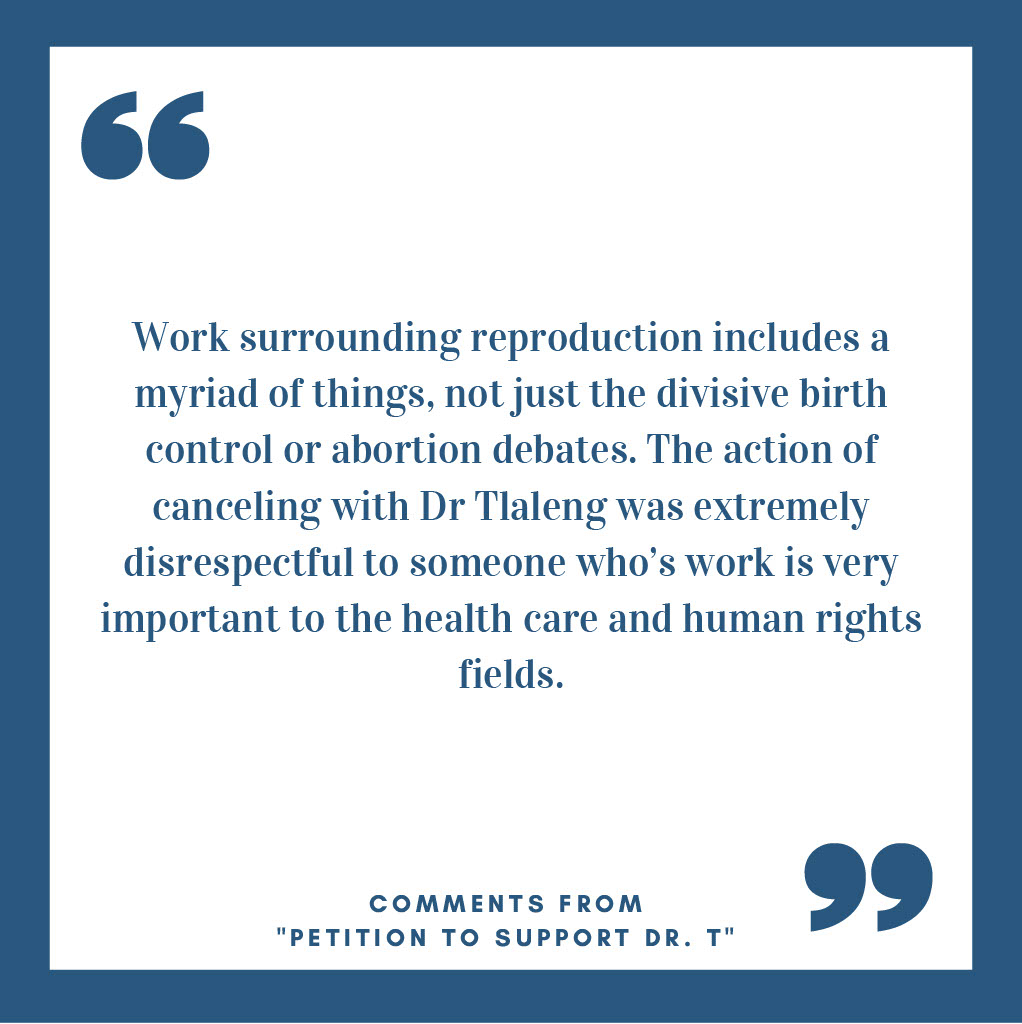
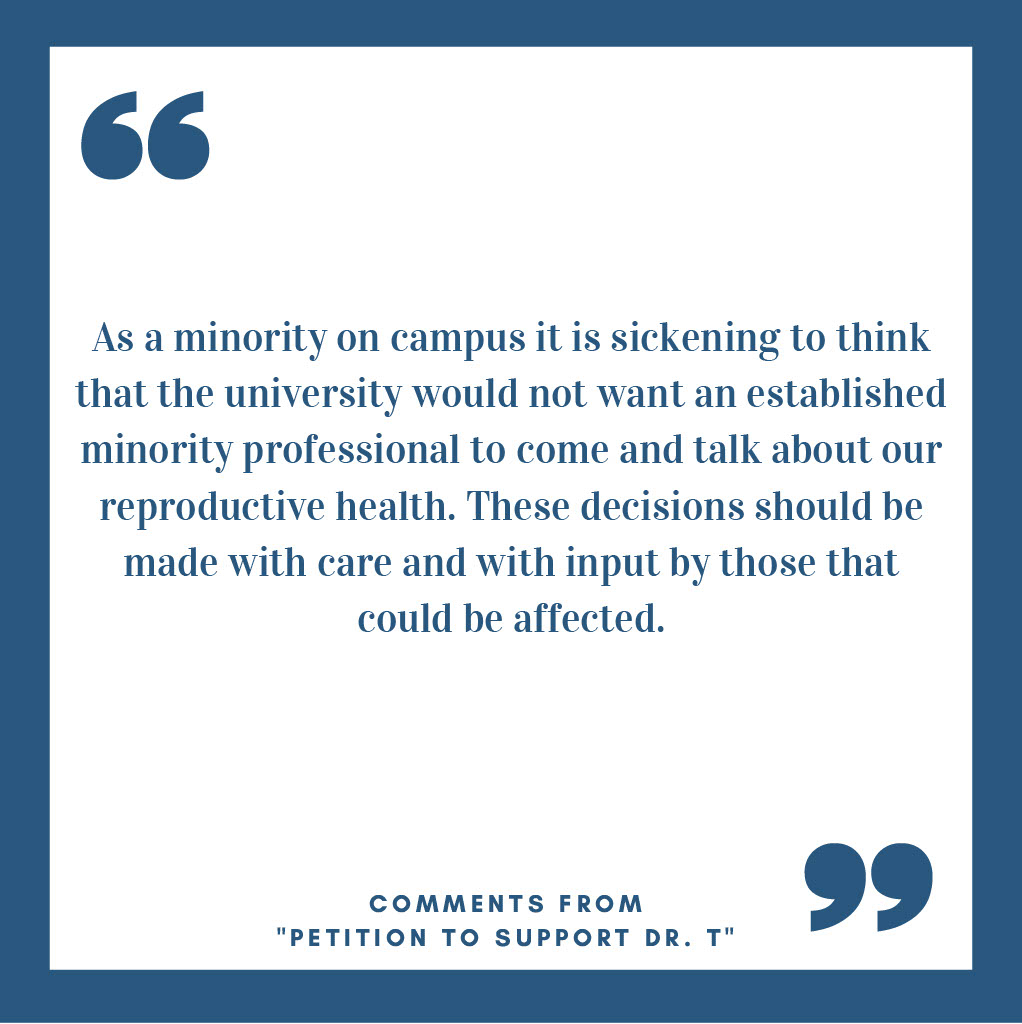
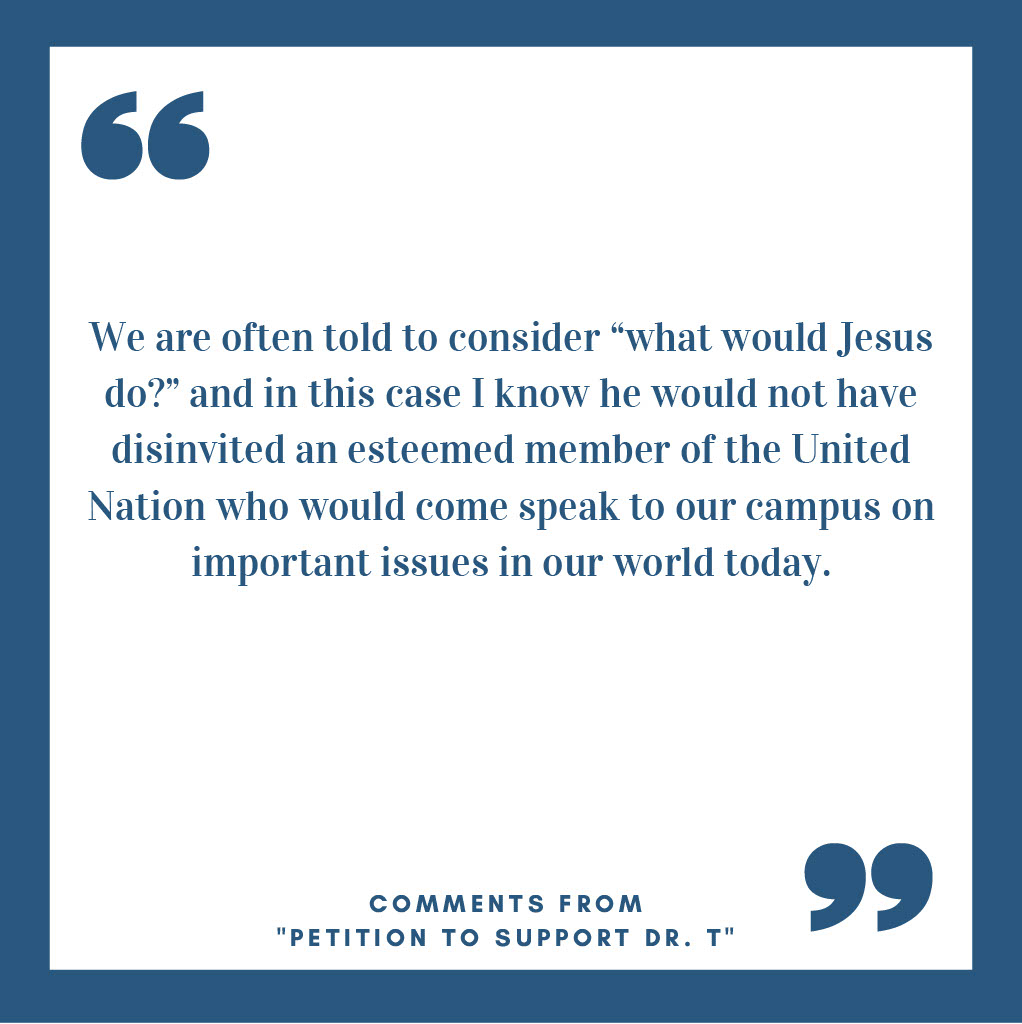
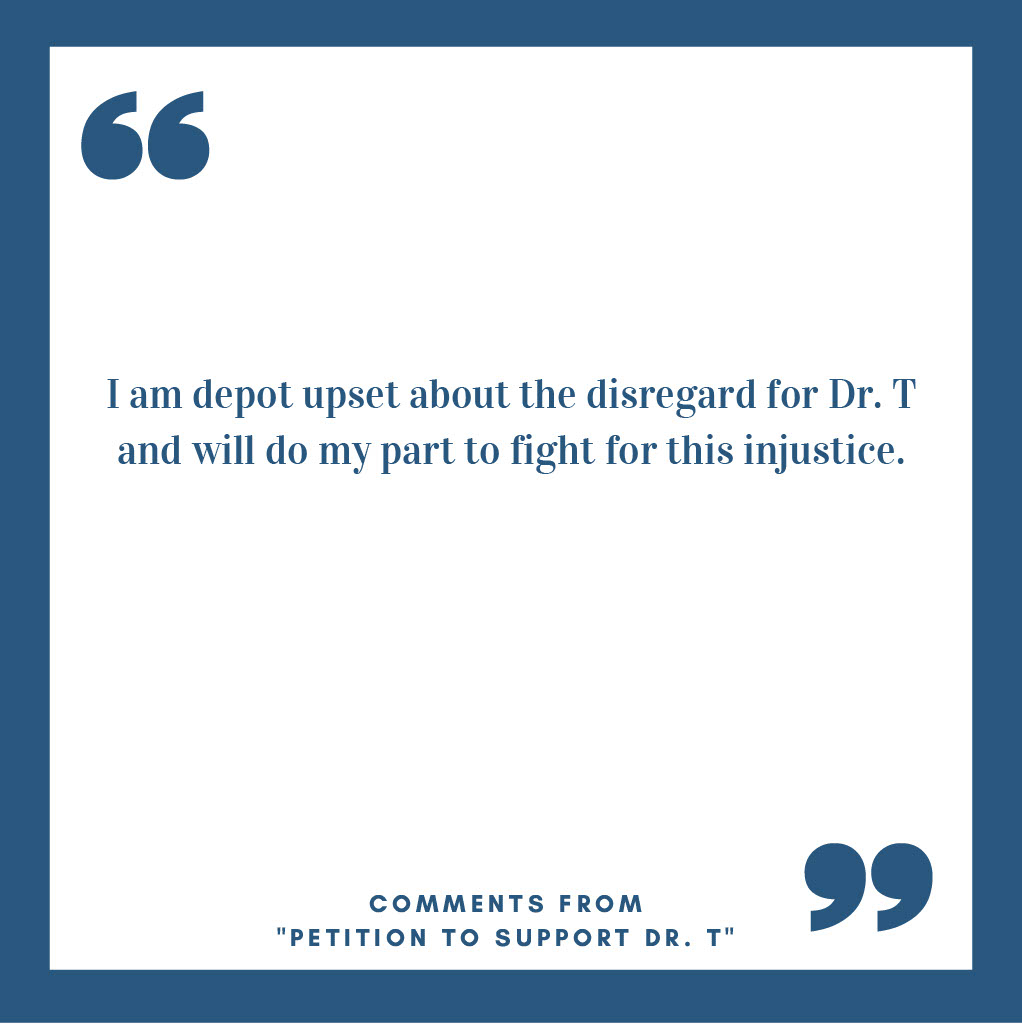

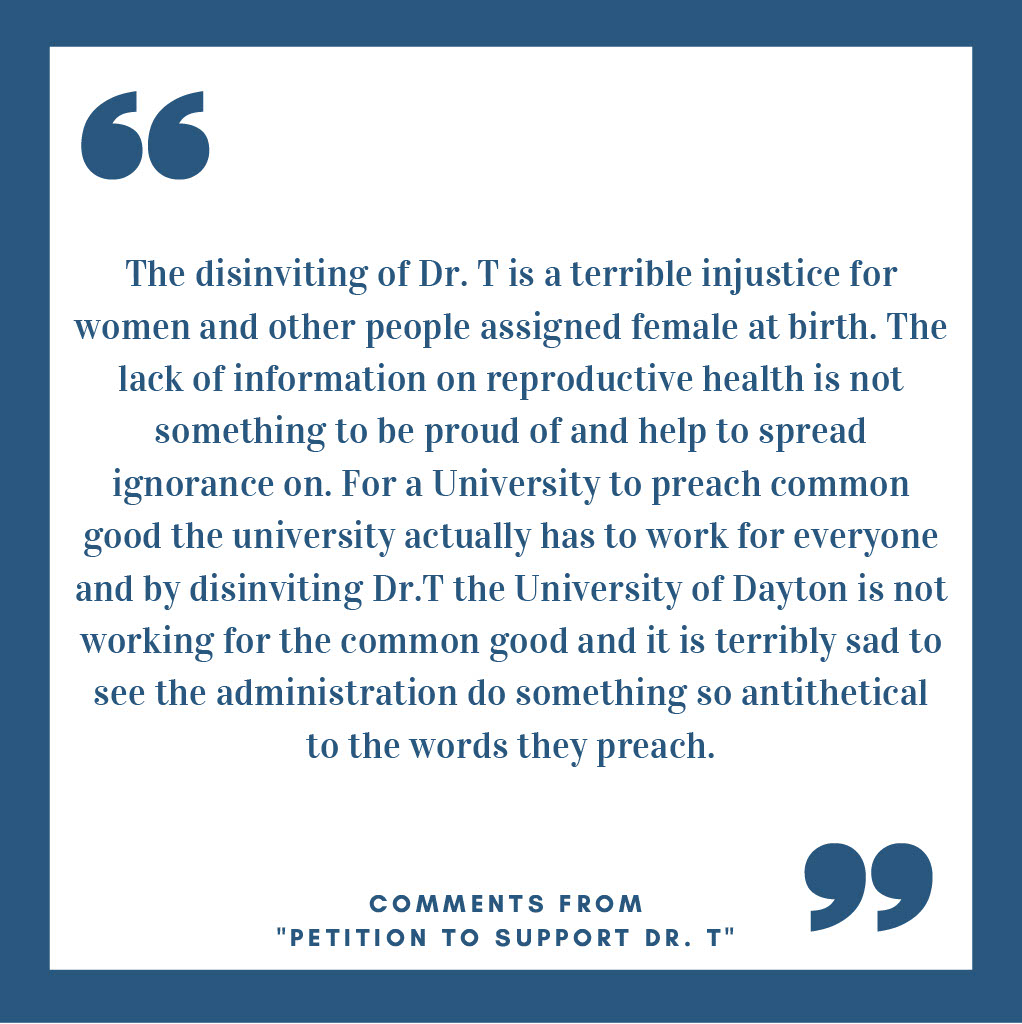
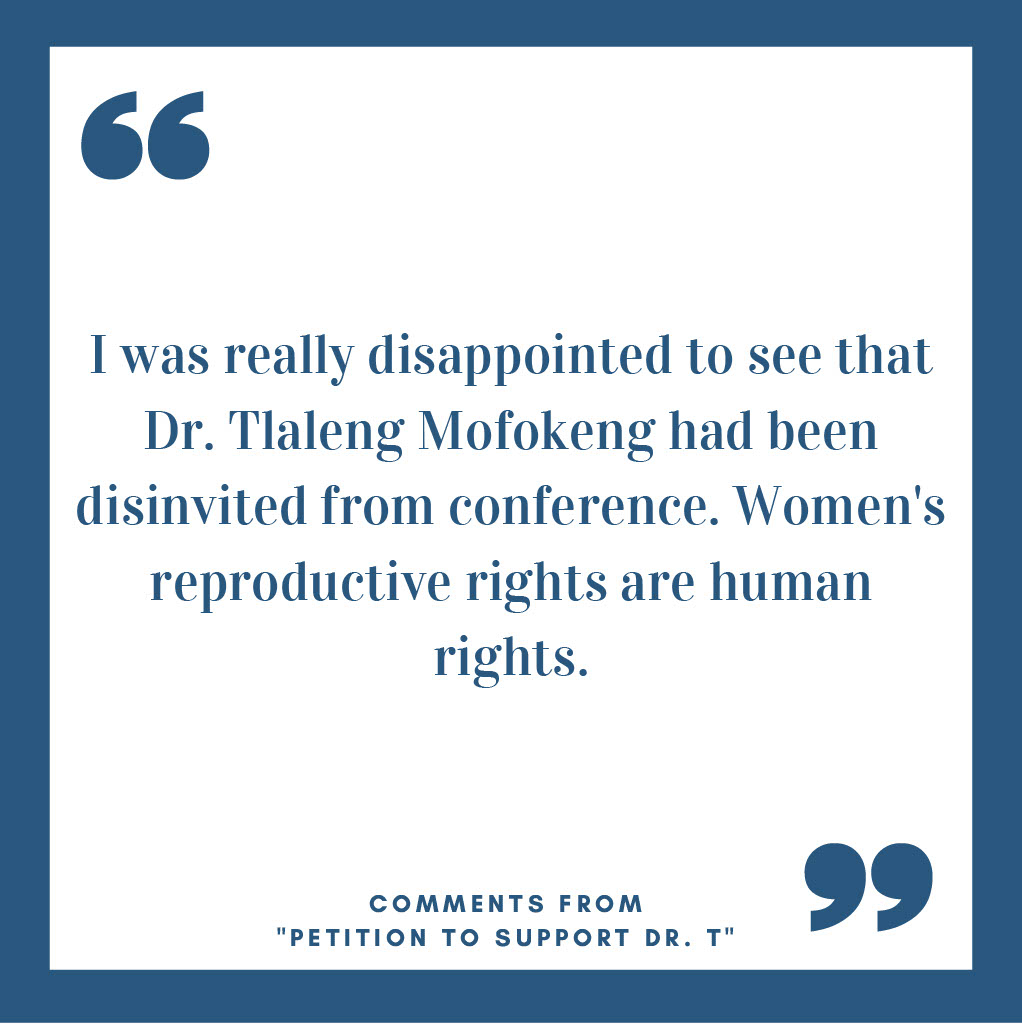
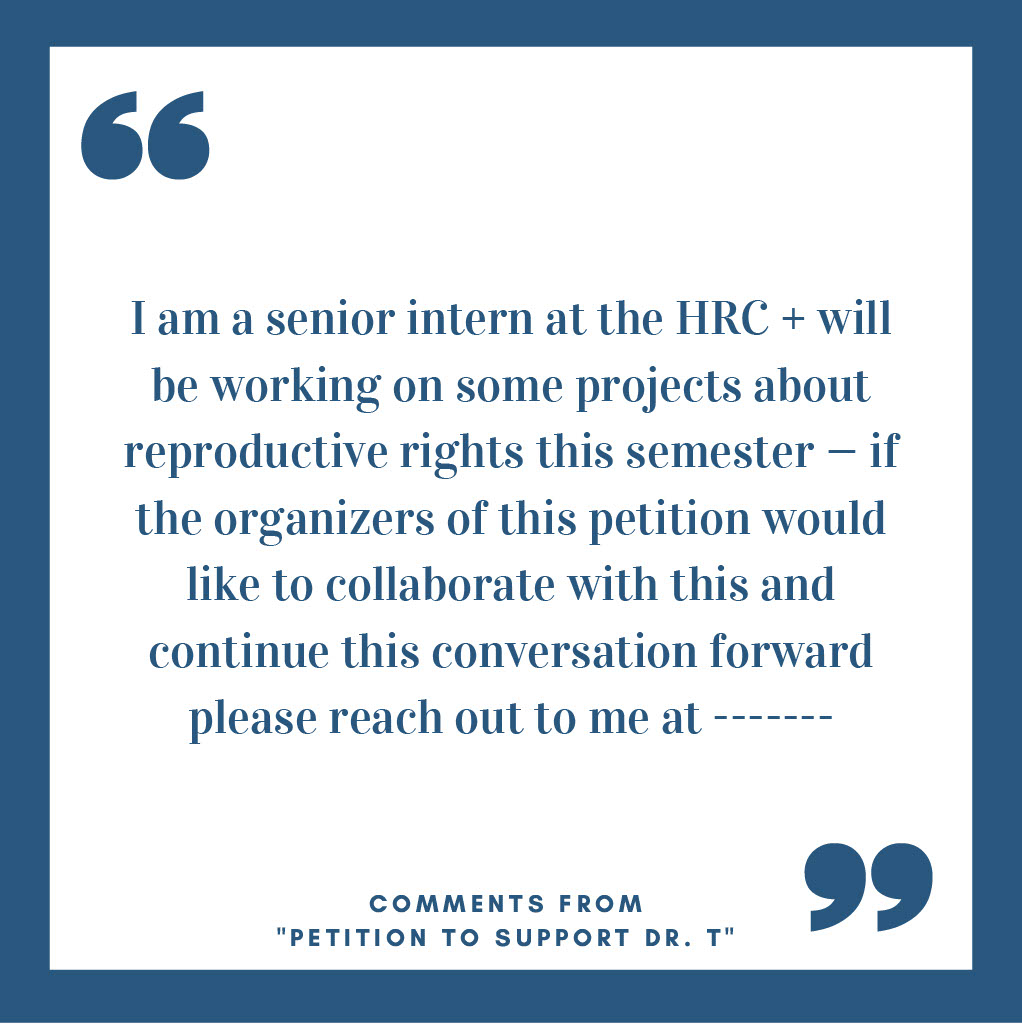
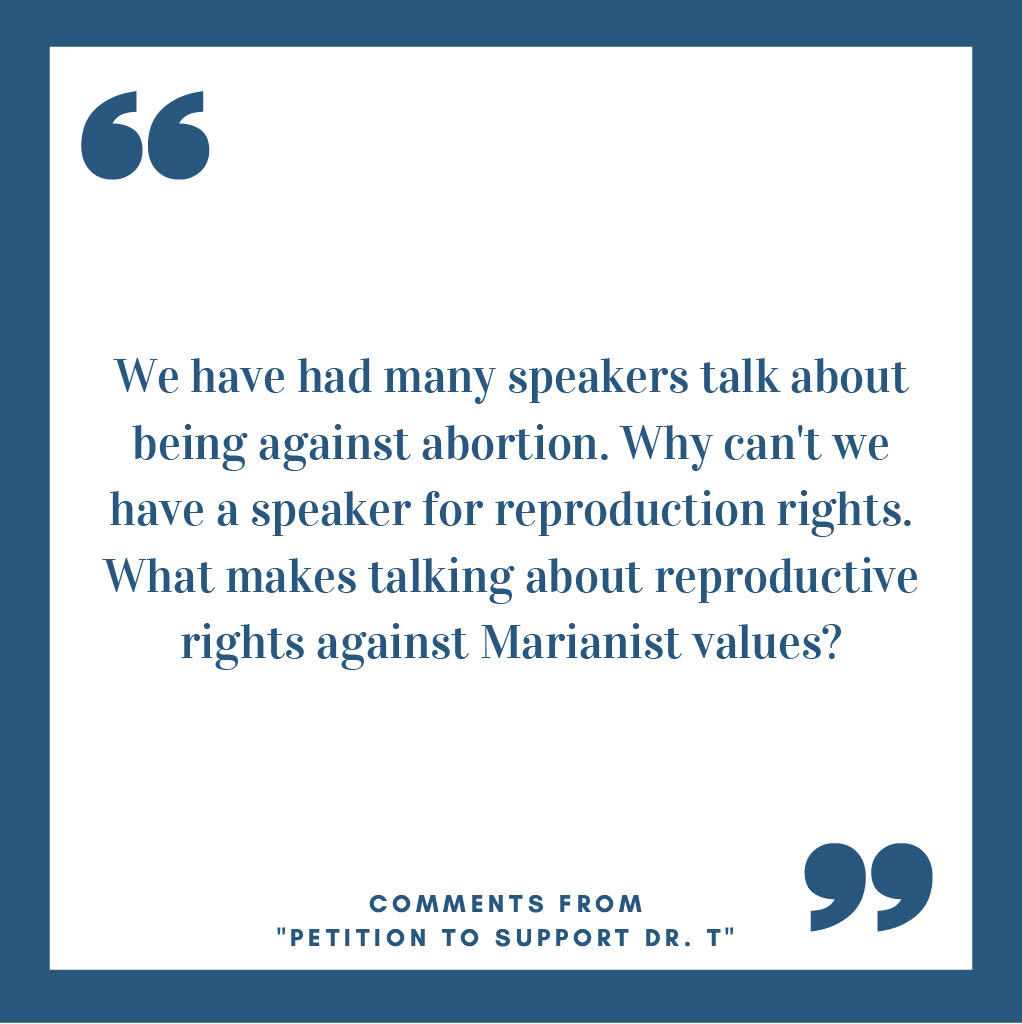
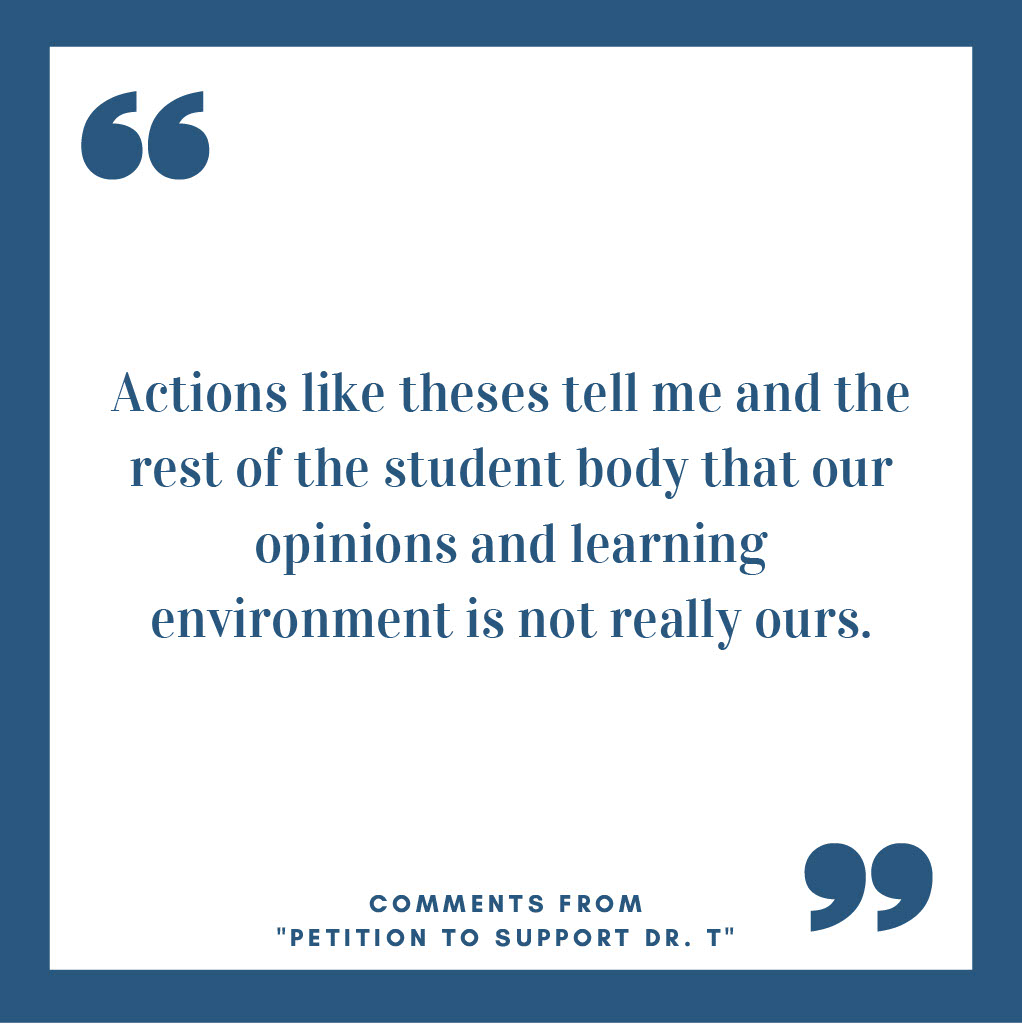
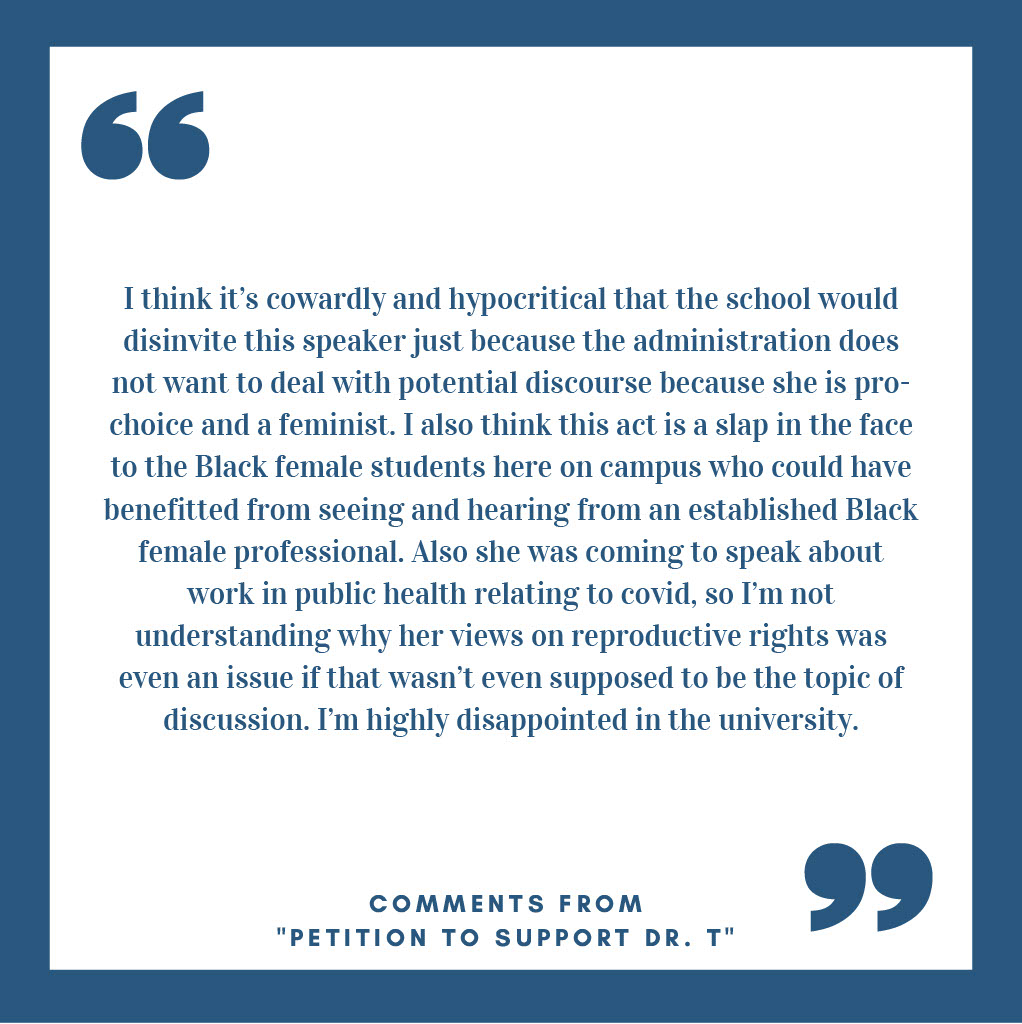
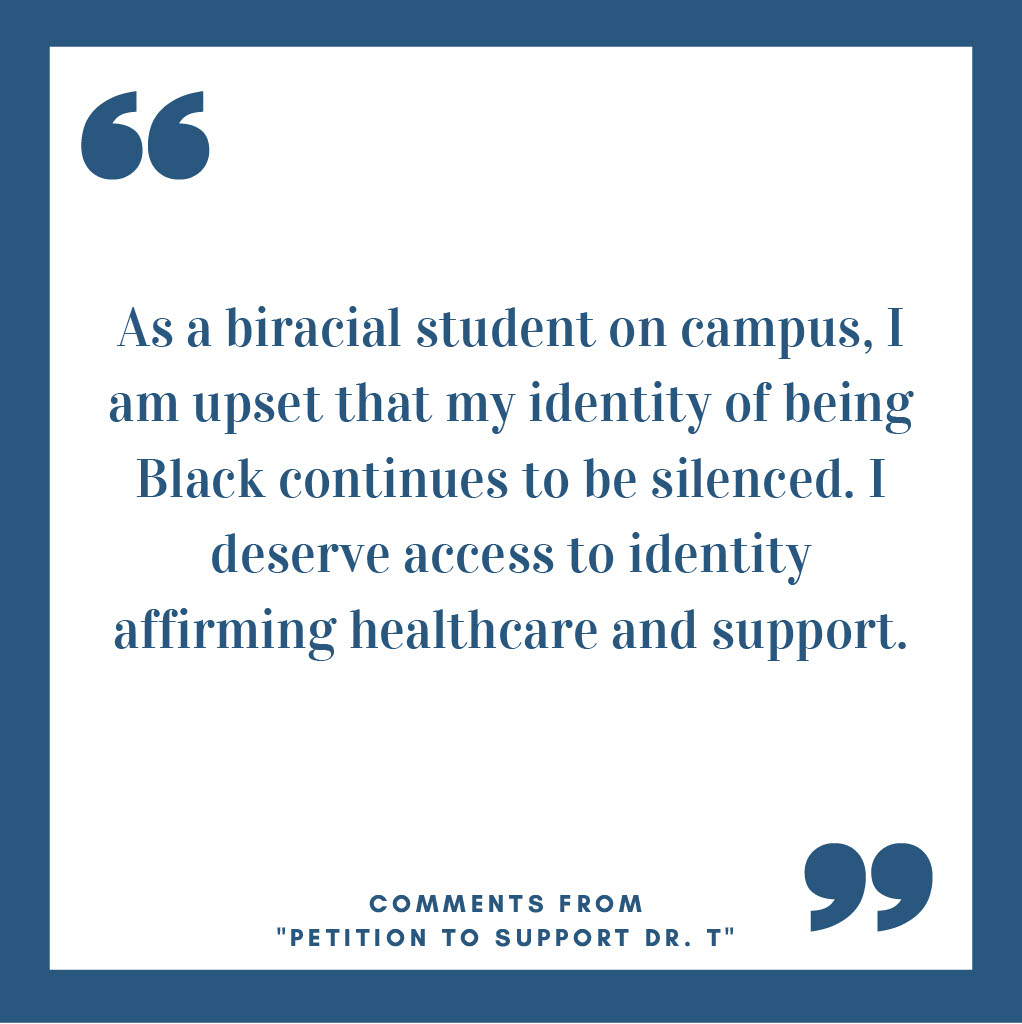
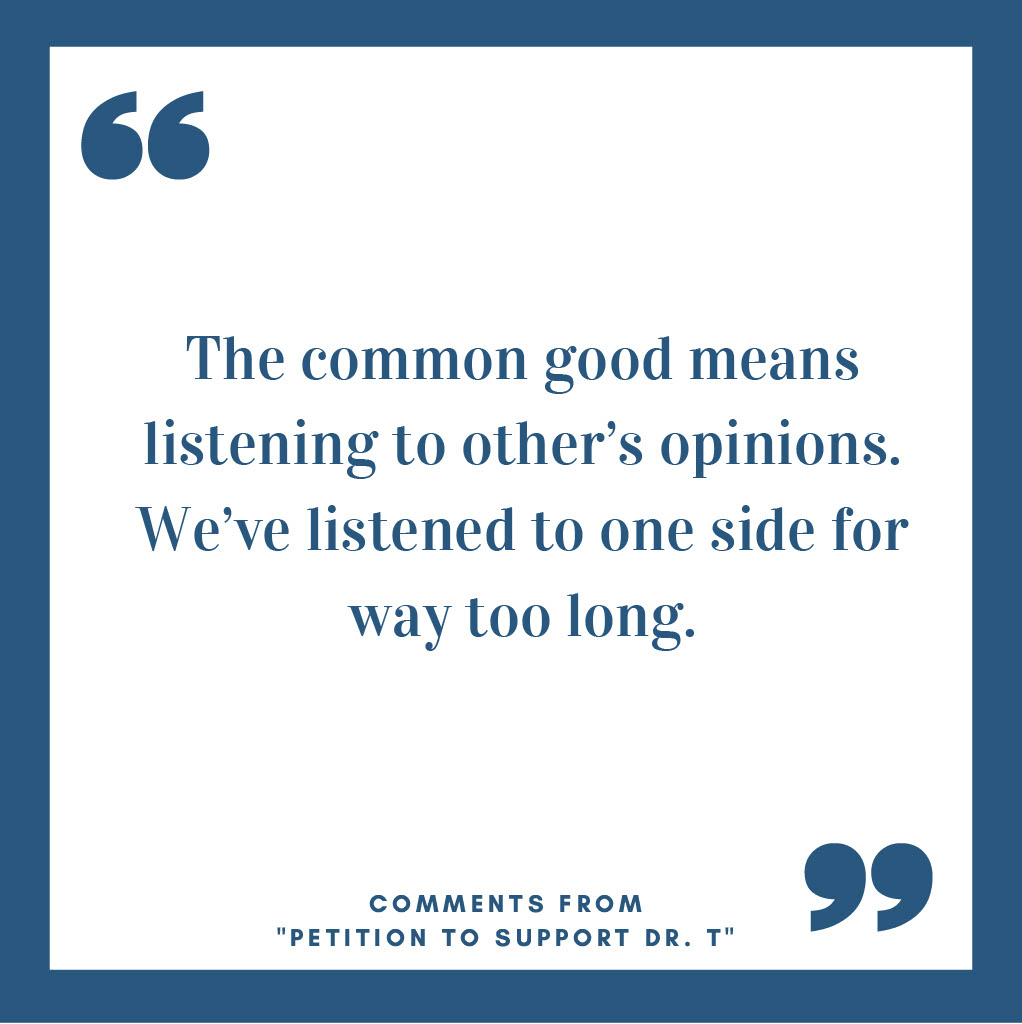
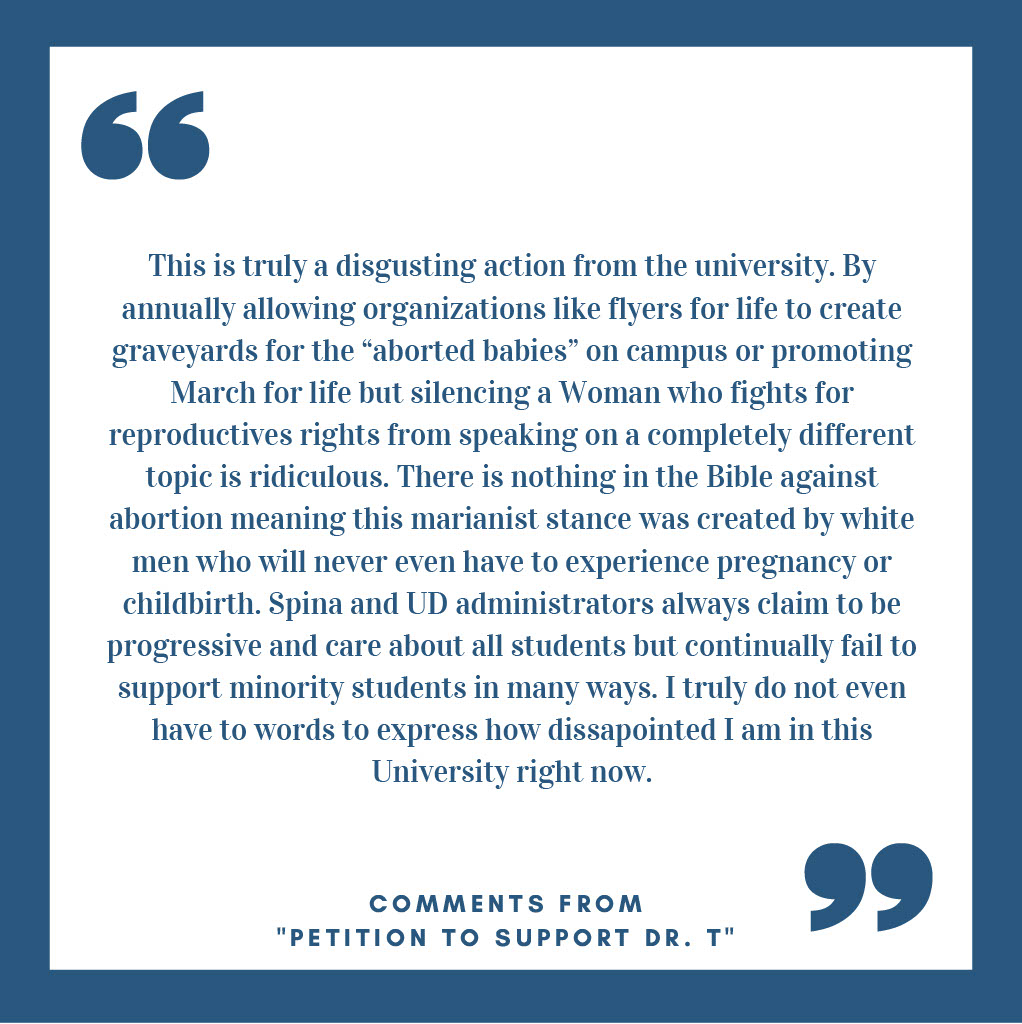
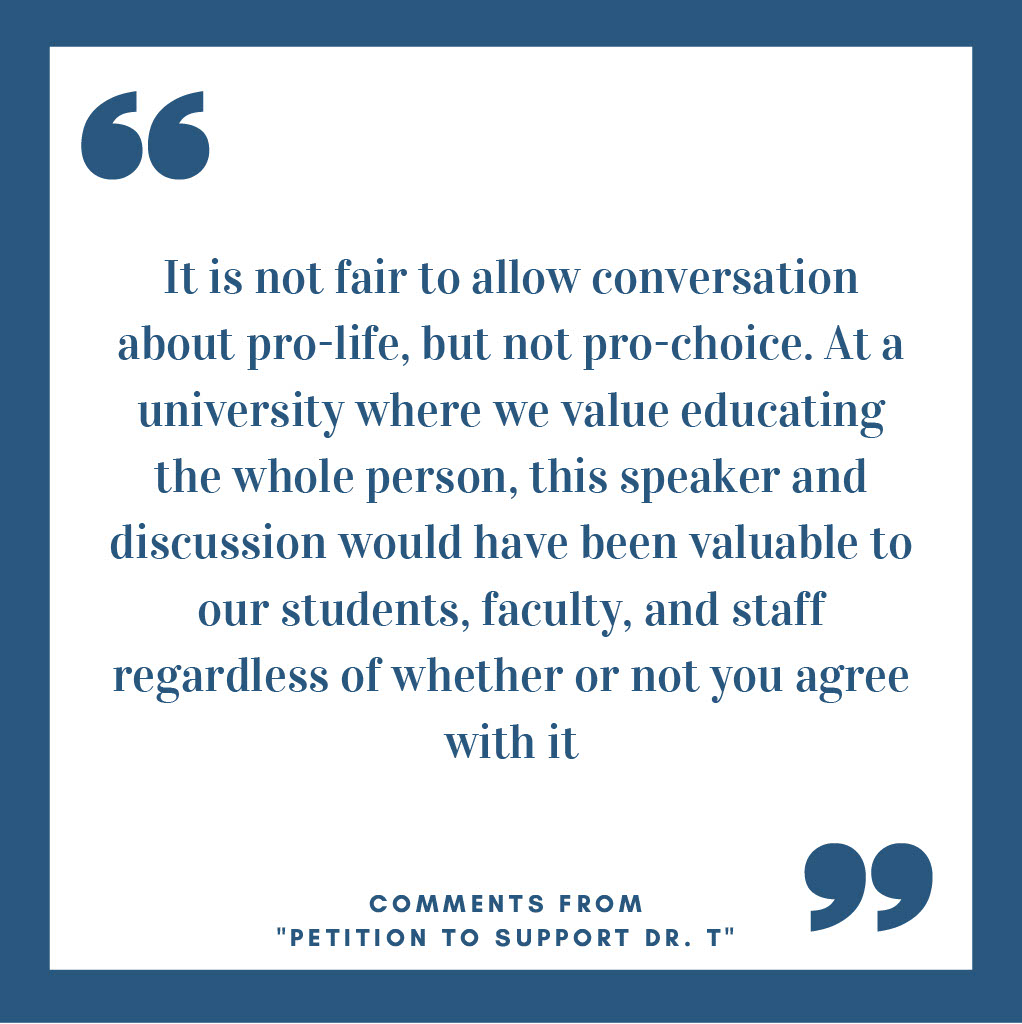
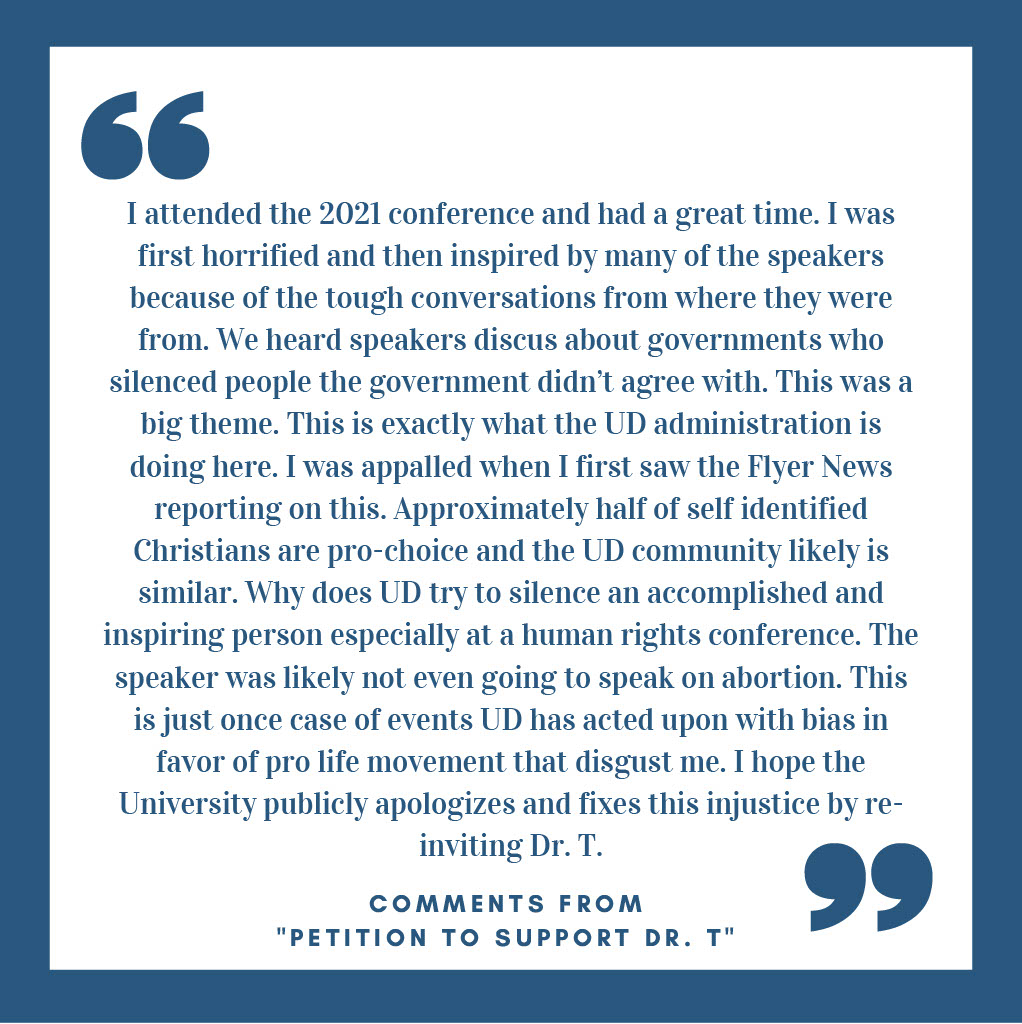
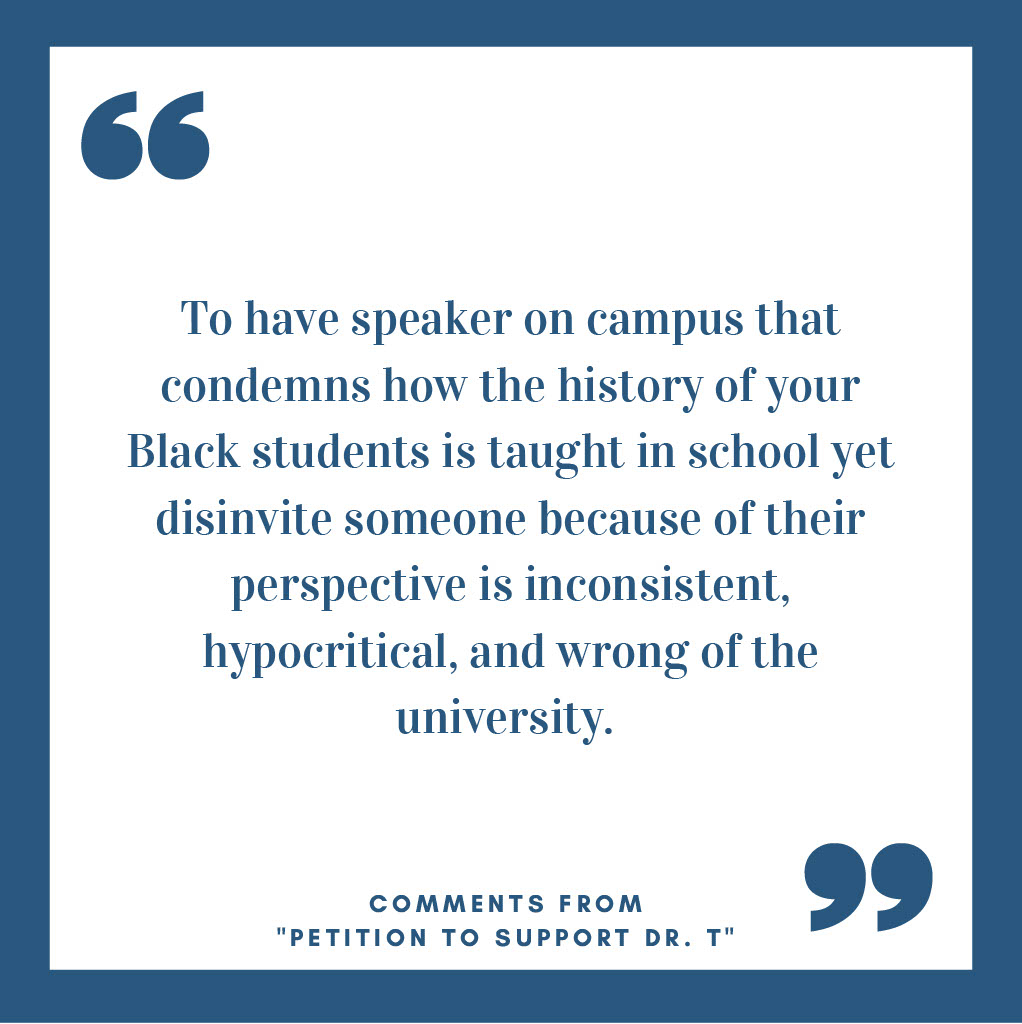
For more campus news, like Flyer News on Facebook and follow us on Twitter (@FlyerNews) and Instagram (@flyernews).

